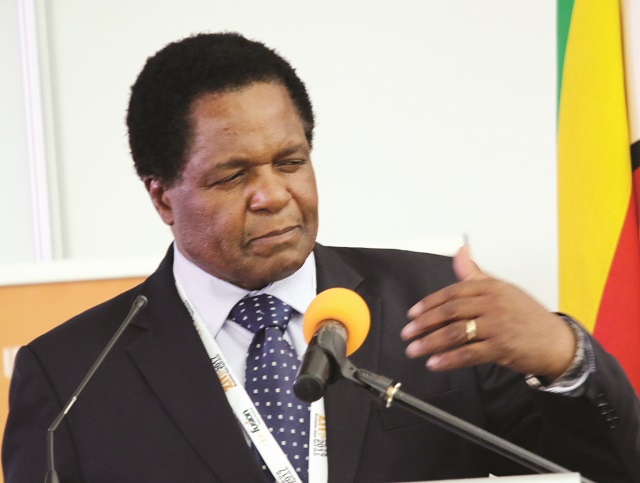Govt unveils SMEs infrastructure policy

Sukulwenkosi Dube-Matutu, Plumtree Correspondent
The Government has drafted a Small to Medium Enterprises (SMEs) infrastructural development policy that compels local authorities to provide working space for up-and-coming businesses, a Cabinet Minister said.
Speaking during a meeting with stakeholders in Plumtree on Thursday SMEs and Co-operative Development Minister, Sithembiso Nyoni, said the new policy was approved recently by Cabinet.
As such, she said her ministry will be monitoring local authorities to ensure they adhered to the policy, which also requires councils to construct access roads for SMEs especially in rural areas.
The minister said the policy was necessitated by a realisation that inadequate infrastructure was crippling the growth of SMEs in the country.
“As a ministry we have crafted a policy on infrastructure for SMEs, which was recently approved by Cabinet. Under the policy local authorities are expected to create proper working space for SMEs,” said Minister Nyoni.
“In rural areas we have a number of people who are producing different artefacts from their homes but they don’t have selling points and as a result some of these businesses flop. There shouldn’t be any vendors operating by the roadside as we expect local authorities to provide appropriate work space for them.”
She said local authorities were mandated to provide infrastructure such as factory shells, warehouses, trading bays for cross border traders, brick moulding centres, farm produce whole sale markets among other structures.
Estimates indicate that close to $5 billion could be circulating in the informal sector where millions of people are employed. The Zimbabwe Revenue Authority has also acknowledged the growth of SMEs who are believed to be contributing 20 percent of revenue to the fiscus.
The minister said under the new policy, local authorities were expected to plough back at least 30 percent of their proceeds collected from MSMEs towards their infrastructural development.
“Local authorities are expected to construct factory shells and lease them to entrepreneurs. These factory shells should allow sufficient space for production and should have basic attendant services such as water, access roads, parking space, ablutions and electricity.
“Councils should adjust their by-laws to include provision of working space for SMEs. They should also set aside a reasonable percentage of revenue raised from fees and licences for the construction of appropriate infrastructure to facilitate the development of the sector,” she said.
Minister Nyoni also urged local authorities to convert disused industrial outlets into working space for SMEs.
Speaking on the $90 million funding package that was recently launched by Government, the minister urged SMEs to legalise their operations or form co-operatives in order to benefit under the facility. She raised concern that SMEs from big cities were benefiting from funds that have been previously availed while those from rural communities have been left out.
“The ministry has acquired finances and as SMEs you have to be organised so you can access the funds. Form co-operatives according to your nature of business and have them registered.
“SMEs in rural communities are often left out because you don’t take up these opportunities or you are not properly organised. This money is there to ensure that you grow from being small businesses,” she said.
Speaking on infrastructure challenges faced by informal traders from his area Bulilima SMEs officer, Mr Ephraim Ndlovu, said business operators were running losses because of the poor road network.
He said they had to drive from different villages in Bulilima to Plumtree for their supplies and in the process suffered breakdowns because of poor roads.
Mr Ndlovu said some of the irrigation farmers in the district had since stopped producing because of a breakdown in pumps and boreholes.
Minister Nyoni also toured SMEs projects in Bulilima District. Vice President Emmerson Mnangagwa recently launched the $90 million funding package aimed at capacitating various up-and-coming businesses across sectors and to help formalise their operations to ensure they contribute to the economy.
— @DubeMatutu








Comments